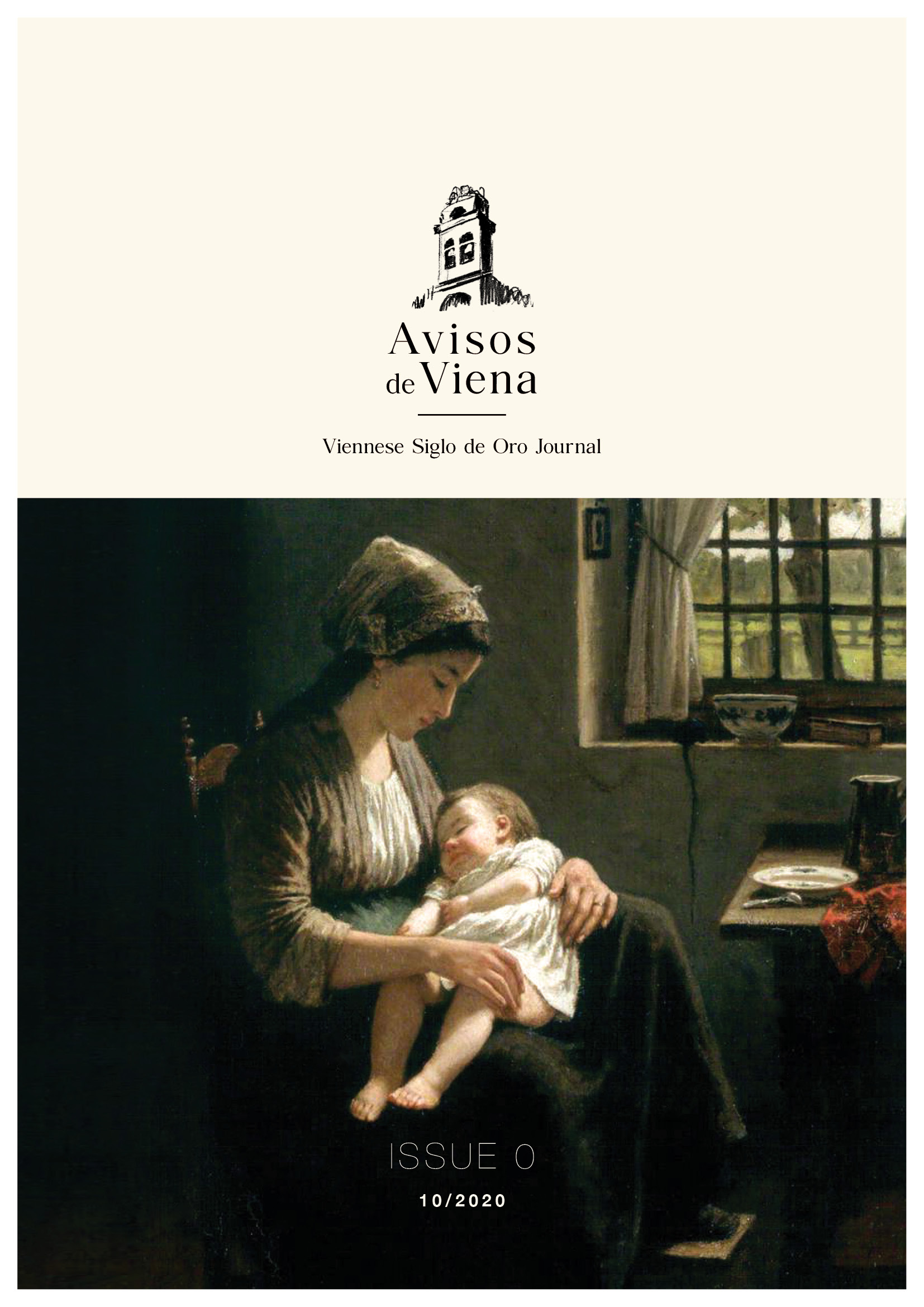Las Manos de la comadre y la camisa del padre
El parto y la creación de los primeros vínculos humanos
DOI:
https://doi.org/10.25365/adv.2020.1.6174Keywords:
The Interpretation of Childbirth in Early Modern Spain, childbirth, Spain, España, comadre, camisa, padre, nacimiento, parto humano, Cervantes, Lope de Vega, manos de la comadre, madre tierraAbstract
The birth process in the human species is peculiar: it severs the primary connection with the mother, yet, without much delay, new bonds must be forged upon which the survival of a helpless being depends. Who responds to the cries and calls of the newborn? This is the question at hand in every birth, even those occurring under normal conditions, where a mother is ready to attend to her child. This distinguishing feature separates humans from animal species, which do not rely on other group members for assistance during birth and the reception of the newborn. Human childbirth involves the unique intervention of another group member, aiding the mother in the final stages, which not only reduces maternal-infant mortality but also provides crucial emotional support. While the exact origin of this characteristic is unknown, it likely predates the emergence of our species, underscoring the emotional and social significance of the birthing scene in human history.
References
Aichinger, Wolfram. “Partos de reinas y peripecias de reinos en la comedia de Lope de Vega”. Tiempo e historia en el teatro del Siglo de Oro. Actas selectas del XVI Congreso Internacional de la AITENSO, ed. Isabelle Rouane, Isabelle Soupault, Philippe Meunier, Aix-en-Provence, Presses universitaires de Provence, 2015, https://www.aitenso.net/pup-4528.pdf.
Aichinger, Wolfram. “Childbirth Rhythms and Childbirth Ritual in Early Modern Spain, together with some Comments on the Virtues of Midwives”. Hipogrifo: revista de literatura y cultura del Siglo de Oro, 6 (1), 2018, DOI: http://dx.doi.org/10.13035/H.2018.06.01.29.
Aichinger, Wolfram. “Juan Pantoja de la Cruz: El nacimiento de la Virgen (1603)”. Meisterwerke der spanischen Malerei in Einzeldarstellungen, ed. Ralf Junkerjürgen and Helmut C. Jacobs, Berlin, Erich Schmidt, 2018.
Carranza, Alonso de. Disputatio de vera naturalis et legitimi partus designatione, Madrid, Francisco Martínez, 1628.
Cervantes, Miguel de. Novela del coloquio de los perros, Novelas ejemplares II, ed. Harry Sieber, Madrid, Cátedra, 1989, pp. 297-359.
Eliade, Mircea. Mitos, sueños y misterios, Madrid, Grupo Libro, 1991.
Engelmann, George Julius. Labor among Primitive Peoples, London, J.H. Chambers & Company, 1983.
Laget, Mireille. Naissances. L’accouchement avant l’âge de la clinique, Paris, Seuil, 1982.
Linage Conde, Antonio. “Algunos primeros y últimos viajes y ayudas para el camino en la Sepúlveda del Antiguo Régimen”. Homenaje al profesor José Antonio Escudero, 4 (2012).
Loux, Françoise. Le jeune enfant et son corps dans la médicine traditionelle, Paris, Flammarion, 1978.
Metz-Becker, Marita. Der verwaltete Körper. Die Medikalisierung schwangerer Frauen in den Gebärhäusern des frühen 19. Jahrhunderts, Frankfurt am Main, Campus, 1997.
Downloads
Published
How to Cite
Issue
Section
License
Copyright (c) 2021 Wolfram Aichinger

This work is licensed under a Creative Commons Attribution 4.0 International License.
© Open Access, CC BY 4.0








